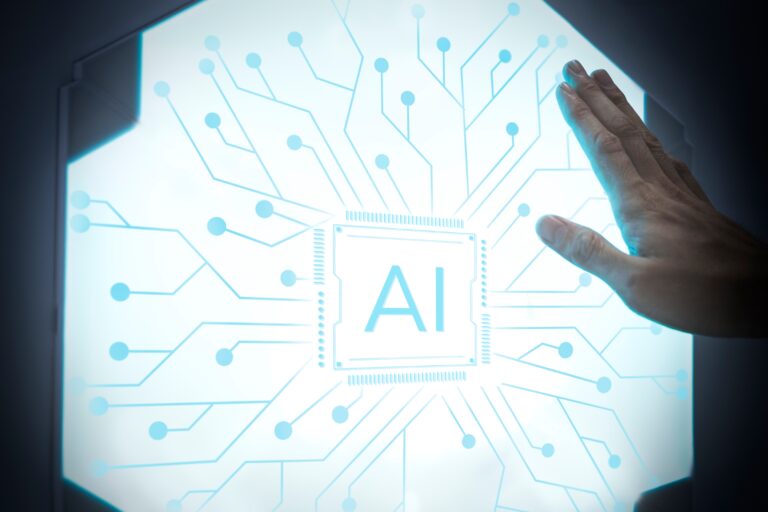
A young female tourist wearing a white dress and a hat in the garden of the Hieronymites Monastery, Lisbon
Introduction
Across Spain, a new chapter in education is quietly taking shape. Artificial Intelligence, once a subject reserved for research centers, has now entered university life. Professors of law, medicine, and philosophy talk about algorithms and ethics as if they once talked about logic or justice. The coming of artificial intelligence (AI) onto campuses is not a simple technological upgrade; rather, it represents a sea change in the creating, dissemination, and questioning of knowledge.
Understanding AI has turned into a new form of literacy. Students learn to read data, recognize bias, and understand how intelligent systems impact human decisions. The World Economic Forum estimates that more than 40 percent of the jobs forecasted by 2025 will require some level of AI competence. Spanish universities have grasped the fact that training students for this means much more than teaching technology it means teaching reflection, adaptability, and critical thinking.
From curiosity to curriculum
The change began quietly, driven by a few pioneering institutions. The University Carlos III of Madrid was one of the first to create a full bachelor’s degree in Artificial Intelligence, in both English and Spanish. The program is aimed at training professionals who will be able to design intelligent systems to solve complex real world problems related to healthcare, robotics, and business analytics. Soon after, the Polytechnic University of Catalonia became the first Spanish university to officially offer AI degrees at all three levels: bachelor’s, master’s, and doctoral.
Others soon followed, developing new AI focused degrees: the University of Barcelona, the University of Valencia and the Francisco de Vitoria University did so; the latter, partnering with Microsoft and NVIDIA to provide students with access to real industrial tools. According to Spain’s Ministry of Universities, today there are more than thirty master’s programs nationwide dedicated to AI and data science. Many of those are bilingual or entirely in English, showing Spain’s growing ambition to position itself as a European hub for technological education.
Why AI matters to higher education
AI is both a must and a dream in university education. The labor market in Spain is changing at full speed: Automation, Analytics, and Digital Systems are entering almost all industries. Without a background in AI, graduates run the risk of entering a world for which they will not be prepared.
But the importance of AI doesn’t stop at employability. It touches on deep philosophical and ethical questions: What does it mean to think, to create, to decide in the age of the algorithms? The European Commission’s Digital Education Action Plan (2021–2027) urges all member states to make AI and data literacy central to learning. Spanish universities have embraced this challenge, not only by adding technical courses but by exploring the social and ethical implications of artificial intelligence.
Different paths toward integration
There is no single path for integrating AI into academia. Some universities, such as UC3M and UPC, have built entire degrees around AI. Others have added AI based modules to existing programs in computer science, mathematics, or engineering. In medicine, business, and communication, AI is being introduced as a transversal subject: medical schools explore AI assisted diagnoses, while journalism students can conduct special research into the rise of AI generated content.
A 2025 study published on arXiv found that roughly 19 percent of Spanish medical faculties now include AI courses, most as electives. Though still limited, this marks a meaningful beginning. The aim is not to turn doctors into programmers but to ensure they understand and evaluate the tools they will soon depend on.
A shot of an Asian college student working on her laptop on campus

Challenges and inequalities
Nevertheless, the development of AI education in Spain is uneven despite its visible progress. Public universities in Madrid, Barcelona, and Valencia took the lead, while smaller regional institutions often struggle with resources. Specialized faculty are scarce, and high performance computing infrastructure is costly.
Ethics are another challenge. How to build algorithms is easier to teach than how to use them responsibly. The Polytechnic University of Madrid has introduced ethics and AI governance into its postgraduate courses, but at most institutions, these are considered optional subjects. The danger lies in the fact that professionals of the future may know how to make intelligent systems, but not how to question them.
AI as both subject and tool
Artificial intelligence is not only a subject of study; it’s also changing how universities work. Professors use AI tools for everything from personalizing lessons to tracking student performance, making administrative processes more efficient. Universities increasingly are the laboratories for just those technologies they teach.
This dual role raises new questions. How much autonomy should AI have in education? Where does human decision making remain indispensable? Used wisely, AI can enhance teaching it can free educators from repetitive tasks and allow them to focus on mentoring, creativity, and human connection. The challenge is in keeping technology at the service of humanity, not the other way around.
The road ahead
Several trends shape the future of AI education in Spain. First, internationalization is expanding: many programs are now taught in English, attracting students from across Europe, Latin America, and Asia. Interdisciplinarity is deepening, too, with AI merging with psychology, law, and environmental studies. The professional of the future will have to learn code, as well as context, ethics, and empathy.
Lifelong learning is becoming a pillar of the new model. Universities offer micro credentials and short programs that allow professionals to continuously update their skills. Partnerships with companies like Google, Amazon, Telefónica, and IBM are on the rise, with the guarantee that universities will keep in close contact with the real needs of the job market.
A human reflection
What makes this transformation remarkable is that this is not a technology driven revolution alone; it is people driven. Forcing AI integration in education automatically compels us to reboot what intelligence really means and what remains uniquely human in an automated world. Spanish universities are not only generating data scientists; they are creating citizens who can think ethically, creatively, and critically about the systems shaping their lives.
It’s an imperfect and uneven process, yet profoundly hopeful. Each new course, each debate about ethics, each collaboration of students and machines moves Spain closer to an education balanced between innovation and awareness. In a very real sense, Spanish universities integrating AI into their curriculum are not surrendering to technology but are guiding and giving meaning to it.
Conclusion
Speaking for ourselves, what is taking place in Spain is more than an academic adjustment; it’s a generational turning point. Artificial intelligence within university life is changing how we learn, how we teach, and even how we understand what it means to be human. We see classrooms where curiosity meets data, where young minds use technology not to replace thinking but to expand it.
This new educational era requires courage, creativity, and empathy. It calls upon us, as educators and as a society, to balance innovation with ethics, progress with reflection, and technology with humanity. Spanish universities have shown that it is possible. They are showing that even though a nation is rooted in its history, language, and culture, it can also be a leader in technology and knowledge.
The message seems clear as we look ahead: Education needs to evolve not to keep up with machines but to stay deeply, intentionally human. And that, perhaps.



